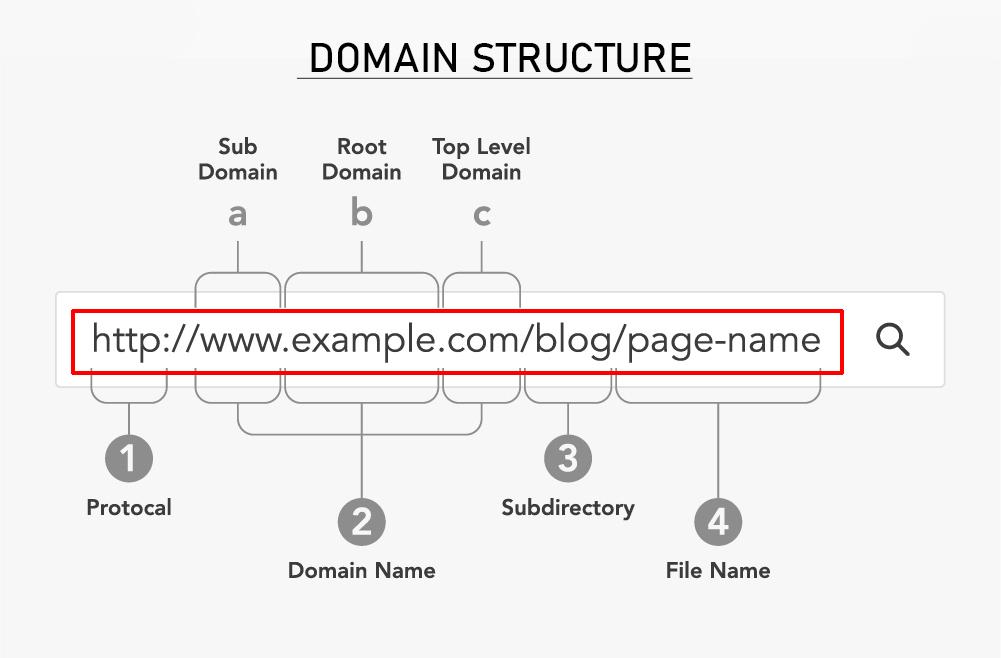Table of Contents
- Understanding the Benefits of Buying a Domain from an Individual Seller
- How to Identify a Reliable Domain Seller
- Essential Questions to Ask Before Finalizing Your Purchase
- Evaluating Domain Value and Its Market Worth
- The Process of Transferring Ownership: Step-by-Step Guide
- Q&A
- To Wrap It Up
Understanding the Benefits of Buying a Domain from an Individual Seller
Purchasing a domain from an individual seller can provide unique advantages that are not typically available when buying from a registrar. One of the primary benefits is the potential for acquiring a domain with established authority. An individual seller may offer a domain that has been around for a while, allowing you to inherit its existing search engine rankings and backlinks. This can give your website a significant head start in terms of organic visibility.
Another noticeable benefit is the opportunity for negotiation. Individual sellers are often more flexible regarding pricing and payment terms than large corporations or registrars. This flexibility can lead to a more favorable deal. Plus, when you engage with a seller directly, you can usually ask questions about the domain’s history, previous usage, and any existing SEO value it may have. Such insights can be invaluable when making your decision.
purchasing a domain from a personal seller often opens avenues for establishing a more personal business relationship. This rapport can lead to future collaborations, partnerships, or additional services they might offer. It’s also common for individual sellers to provide support and guidance during the transfer process, making it easier for you to navigate any challenges. the personalized experience can make the investment feel more worthwhile.


How to Identify a Reliable Domain Seller
Identifying a trustworthy domain seller is crucial to ensuring a smooth transaction and safeguarding your investment. Start by checking their online presence; a reliable seller often has a well-maintained website with clear contact details and a privacy policy. Reviews and testimonials from previous customers can also provide insight into their reliability. Look for feedback on platforms such as Trustpilot or site-specific forums where domain transactions are discussed.
Another important aspect to consider is the domain seller’s experience and expertise in the industry. A seasoned seller will likely have a robust portfolio demonstrating the variety of domains they offer. They should be knowledgeable about the value of domains based on factors like SEO potential, age, and market trends. A reliable seller will also be transparent about the history of the domain including past ownership, any existing traffic, and whether the domain has been penalized by search engines.
Lastly, ensure they have clear and secure payment processes. A trustworthy domain seller will offer multiple payment options and a documented agreement outlining the terms of the sale. Additionally, look for buyer protection policies or use an escrow service for the transaction. This adds an extra layer of safety, ensuring that your funds are only released once the domain transfer is complete and satisfactory.


Essential Questions to Ask Before Finalizing Your Purchase
When considering the purchase of a domain from someone, it’s crucial to gather all pertinent information to make an informed decision. Start by verifying the ownership of the domain. You can do this by using WHOIS lookup services to check the current registrant’s details. Make sure that the seller is indeed the rightful owner and has the authority to transfer the domain. Additionally, inspecting the domain history can provide insights into prior ownership, any previous disputes, or penalties associated with it.
Another key aspect to address is the pricing structure and payment methods. It’s essential to understand whether the listed price includes all transfer fees or if there are additional costs involved. Make sure to inquire about the acceptable payment methods as well, ensuring they are secure and trustworthy. Here are some factors to consider:
- Is the price negotiable?
- What payment options are available?
- Are there any hidden fees?
inquire about any limitations or restrictions on the domain. Some domains may come with specific terms that could affect your future use. It’s vital to clarify whether the domain has restrictions on resale or if there are any applicable trademarks associated with it. A clear understanding of these aspects can save you from potential legal troubles down the line. You might also consider asking for a simple table comparing your potential domain with competitors to confirm its value:
| Domain | Price | Age | Traffic |
|---|---|---|---|
| example.com | $500 | 10 years | 150 visitors/month |
| sampledomain.com | $300 | 5 years | 80 visitors/month |


Evaluating Domain Value and Its Market Worth
When considering the acquisition of a domain, understanding its value and market worth is vital for making an informed decision. Various factors contribute to the overall worth of a domain name, such as its length, simplicity, and relevance to your business. A short and memorable name often carries more weight in the market compared to lengthy or complex alternatives. Additionally, a domain that incorporates relevant keywords can enhance not just its inherent value but also its potential SEO advantages.
The following elements play a significant role in evaluating a domain’s market value:
- Domain age: Older domains are typically more valuable due to their established history and credibility.
- Traffic statistics: Domains that already attract existing traffic hold a premium because they may generate immediate leads.
- Brandability: A domain that can easily be associated with a brand or idea is often sought after, making it more valuable.
- Extension type: .com domains tend to be more desirable than other TLDs (Top-Level Domains), influencing the overall market worth.
To further clarify the value proposition, here’s a simple table highlighting key factors and their impact on domain valuation:
| Factor | Impact on Value |
|---|---|
| Length | Shorter domains usually fetch higher prices. |
| Keyword Presence | Increases SEO potential, driving higher valuations. |
| Previous Ownership | A reputable past can enhance credibility and worth. |
By carefully analyzing these factors, you can gauge a domain’s worth more accurately and make a strategic purchase that aligns with your business goals. Always consider enlisting a professional appraisal service for a more detailed evaluation, ensuring you are investing wisely in your online presence.


The Process of Transferring Ownership: Step-by-Step Guide
When you’ve found a domain you want to purchase from its current owner, the first step is to establish communication. This usually involves sending a direct message or email expressing your interest. Be clear and concise in your approach, outlining who you are and why you are interested in the domain. During this initial contact, it’s important to create a positive impression while requesting crucial details such as the asking price, the domain’s history, and any potential issues associated with the transfer.
Once a price has been agreed upon, the next phase is to prepare for the transfer. This part of the process includes several key elements:
- Choose a Transfer Method: Decide whether to utilize a domain registrar for the transfer or manage the process via an escrow service. An escrow service can provide additional security for larger transactions.
- Confirm Domain Status: Ensure that the domain is not locked and that there are no outstanding fees preventing the transfer.
- Gather Required Information: Collect the domain’s authorization or EPP code from the current owner, if applicable. This code is essential for the transfer process.
With all preparations in place, initiate the transfer through your chosen method. If you’re using a domain registrar, follow their specific instructions for the transfer, which typically involves entering the EPP code and confirming your ownership. For transactions through escrow, the service will guide both parties through the process, ensuring that funds are securely held until the transfer is verified. Here’s a quick overview of the steps involved:
| Step | Description |
|---|---|
| Initiate Transfer | Input EPP code and access domain settings. |
| Confirm Ownership | Registrar sends confirmation email to both parties. |
| Complete Payment | Funds are released upon successful transfer validation. |
Q&A
Q&A: Buying a Domain from Someone Else
Q1: What does it mean to buy a domain from someone else? A1: Buying a domain from someone else means purchasing a web address that is currently owned by another person or business. This could involve negotiating a sale price and transferring ownership to you, allowing you to build your online presence on that particular domain.Q2: Why would I want to buy a domain that someone else already owns? A2: There are several reasons you might consider this route. The domain could reflect your brand, be keyword-rich for better SEO, or simply be a memorable name that aligns perfectly with your vision. It can also save you from starting fresh and building brand recognition from scratch.
Q3: How can I find out if a domain is available for purchase? A3: To check if a domain is available for purchase, start by searching for the domain name on a domain registrar’s website (like GoDaddy or Namecheap). If it shows as taken, you can often see the contact details of the owner through “Whois” lookup services, or you might find a landing page with details about purchasing it.
Q4: What steps should I take to buy a domain from its current owner? A4: First, research the domain to understand its value and history. Then, reach out to the owner with a straightforward message expressing your interest. If the owners are open to selling, you can negotiate a price and finalize the sale through a secure payment method or a domain escrow service to ensure safe transfer.
Q5: How do I determine a fair price for a domain? A5: Domain pricing depends on various factors including its length, relevance, and keyword value. Use tools like Estibot or GoDaddy’s Domain Appraisal tool to get estimates. You can also look at similar sales in the market for comparison to gauge a reasonable price.
Q6: What are the potential risks of buying a domain from someone else? A6: There are risks involved such as disputes over ownership or issues with trademarks. Always conduct due diligence by researching the domain’s usage history and ensuring it doesn’t infringe on any trademarks. Using an escrow service can help mitigate financial risks during the transaction.
Q7: Can I negotiate the price when buying a domain? A7: Yes, negotiating is quite common in domain transactions. Approach the seller respectfully and be prepared to justify your proposed price with research. Flexibility may lead to a more favorable deal for both parties.
Q8: What happens after I purchase the domain? A8: After purchasing the domain, you’ll need to initiate the transfer process. This typically involves updating the domain’s registration details to your name and ensuring it is linked to your web hosting service. Confirm that you have full control over the domain in your registrar account.
Q9: Is it necessary to have a business plan before buying a domain? A9: While it’s not strictly necessary, having a clear business plan can guide your choice of domain and help align it with your overall brand strategy. A well-thought-out plan can also provide direction for how you want to use the domain in the future.
Q10: Are there any legal considerations I should be aware of? A10: Yes, ensure the domain doesn’t infringe on someone else’s trademark or business name to avoid legal complications. Additionally, verify that the seller has the legal right to transfer the domain. Consulting with a legal expert in intellectual property can provide peace of mind throughout the process.
This Q&A aims to provide you with a comprehensive understanding of buying domains from existing owners, making your journey smoother and more informed. Happy domain hunting!

